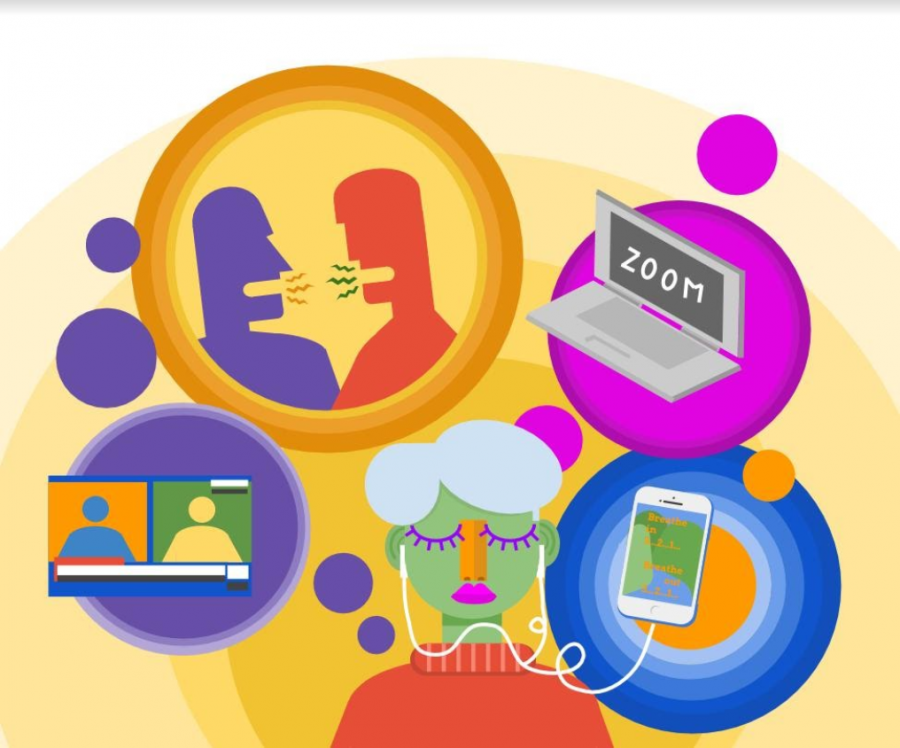Meditation: The Path to a Stress-Free Pandemic
May 26, 2020
Meditation is often misconceived to be hours long, a waste of time, or useless. Although it is widely associated with religious practices, any person can reap the benefits of meditation. Most people don’t understand meditation—they think that the purpose of it is merely to disconnect and space out. But in reality, it makes us more connected and alert than ever. It is a part of human nature to have a scrambled, chaotic mind, but meditation helps us achieve calmness and focus, which, in turn, leads to greater happiness.
As quarantine continues, our minds are muddled with all kinds of feelings: stress, anxiety, sadness, hopelessness, emptiness, and many others. These emotions are a natural part of life, but are heightened during uncertain times, especially for teenagers, who especially value social interaction. In both academic and personal settings, being with friends was a crucial normality of a pre-coronavirus lifestyle. With the necessary and sudden adaptations that arose with social distancing and staying at home, it is no surprise that many teens are feeling down. Meditation is one effective method to address those feelings and cultivate inner peace.
There are many different forms of meditation practice today, but most are rooted in Buddhism. According to the Dalai Lama, “The purpose of life is to be happy … One’s own mental attitude is the most influential factor in working toward that goal.” That is the main focus of meditation (and, many could argue, life): achieving happiness. Meditation trains our minds to tolerate adverse feelings, instead of fighting against them.
States of mind are constantly shifting, like weather patterns. Nobody can control the weather, but it is possible to predict, prepare for, and accept its shifts and changes. Instead of trying to avoid emotions that are difficult to control, meditation gives a set of tools to thoughtfully manage them. One of the more well-known methods is to welcome, rather than reject, an uncomfortable feeling. In order to process difficult emotions, we must first accept them as a normal part of life instead of alienating them. In doing this, we make these feelings less foreign, and more comfortable. Maria Camara, a psychiatrist and licensed mediation expert, teaches that emotions such as stress are just passing, and a simple breathing meditation is proven to immediately relieve a stressed mind.
Meditating is easy to incorporate into your life—you don’t even have to leave your room to do it. The easiest way to get started is by using apps such as Headspace and Ten Percent. These apps provide an introduction to meditation topics like compassion, acceptance, kindness, ethics, resilience, and more. The lessons are taught through 5-20 minute long audio clips (like a podcast) that take the listener through step-by-step instruction. Apps such as Headspace and Ten Percent release shorter lessons so that mediation does not feel like a huge commitment, but instead, a quick exercise that can be done anytime during the day! Anyone can meditate, regardless of experience. The first principle addressed in many basic or introductory lessons is breath control. Breathing is constant, the essence of life, which is why learning how to completely focus on such a simple task is the foundation of many meditation practices.
Meditation is not an elixir that magically solves all your problems; it merely provides a different and more comforting way to process unsettling states of mind.











